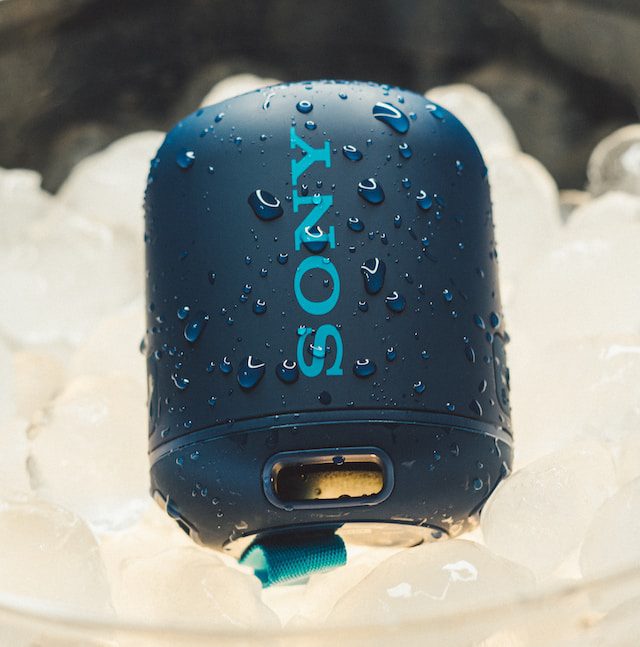One critical aspect of the durability of our electronic devices today is their resistance to water and dust exposure. But how do you know if a device is truly resistant to these elements? That’s where IP ratings come into play.
In this article, we are going to explain the IP68 rating in detail. We will explain its meaning, how it differs from other IP ratings, and why it’s so important for today’s modern gadgets.
Understanding IP Ratings
IP, or Ingress Protection, ratings are international standards used to define the level of protection an electronic device has against dust, water, and other foreign objects. These ratings are represented by the letters “IP” followed by two digits, where the first digit refers to protection against solid particles like dust, and the second digit indicates protection against water.
An IP68 rating is currently one of the highest levels of protection available for electronic devices and gadgets.
The first digit (6) signifies that the device is completely dust-tight and offers the highest level of protection against solid particles.
The second digit (8) means that you can submerge the device in 1.5m deep water for up to half an hour.
IP68 vs. Other IP Ratings
It’s crucial to differentiate IP68 from other ratings, especially when comparing the water resistance of different devices. For example, an IP67-rated device can be submerged in 1m deep water for half an hour, whereas an IP68-rated device offers greater water resistance. On the other hand, an IP69 rating provides protection against high-pressure and high-temperature water jets, but this might not be necessary for typical consumer devices.
Importance Of IP68 Rating In Modern Devices
In our rapidly changing and uncertain world, electronic devices need to be durable enough to handle different environmental situations. IP68-rated devices are designed to endure harsh conditions, making them suitable for numerous situations and applications. And based on the price of some devices, we can consider it as a protection of our investment.
Outdoor and Adventure Enthusiasts
For those who love the great outdoors, IP68-rated devices are perfect companions. This IP rating can help you feel relaxed knowing your device is well protected.
Everyday Accidents
We’ve all experienced the occasional spill or splash. An IP68-rated device can withstand minor accidents like being dropped in a puddle or splashed with water.
Industrial and Professional Use
IP68-rated devices are well-suited for dust, dirt, and water, ensuring that they remain operational and functional despite challenging conditions.
Things to Consider When Purchasing an IP68-Rated Device
While IP68-rated devices offer exceptional protection against water and dust, it’s essential to keep a few points in mind when making a purchase:
Manufacturer Specifications
Always check the manufacturer’s specifications regarding the water resistance of an IP68-rated device. Different manufacturers may have varying definitions of “continuous submersion,” including different depth limits and immersion durations.
Warranty and Limitations
It’s crucial to understand the warranty terms and limitations of an IP68-rated device. Some manufacturers may not cover water damage under their warranties, even if the device is rated IP68.
Accessory Compatibility
Ensure that any accessories you plan to use with your IP68-rated device are also rated for water and dust resistance. Using non-compatible accessories may compromise the overall protection of your device.
Frequently Asked Questions
Can I use my IP68-rated device while swimming?
Although IP68-rated devices are designed for water resistance, it’s not recommended to use them while swimming. Submersion in water at high pressures (such as when swimming) or with exposure to chemicals like chlorine or saltwater can potentially damage the device.
Will an IP68-rated device be covered for water damage under warranty?
This depends on the manufacturer. Some manufacturers may not cover water damage, even for IP68-rated devices. It’s essential to review the warranty policy before purchasing a device.
Can I use any accessory with my IP68-rated device?
When using accessories with an IP68-rated device, it’s crucial to ensure they are also compatible with the device’s water and dust resistance. Using non-compatible accessories may compromise the overall protection of your device.
What should I do if my IP68-rated device gets wet?
If your IP68-rated device gets wet, wipe it down gently with a clean, soft cloth and let it air dry. Avoid using heat sources like hair dryers or exposing the device to direct sunlight, as this can cause damage. Ensure the device is fully dry before using it again.
Conclusion
Understanding IP ratings, particularly the IP68 rating, is essential for choosing the right device to suit your needs. An IP68-rated device offers excellent protection against dust and water, making it an ideal choice for outdoor enthusiasts, everyday users, and professionals in various industries. However, always consider the manufacturer’s specifications, warranty terms, and accessory compatibility before making a purchase. Armed with this knowledge, you can confidently choose the perfect IP68-rated device to accompany you on all your adventures.




































